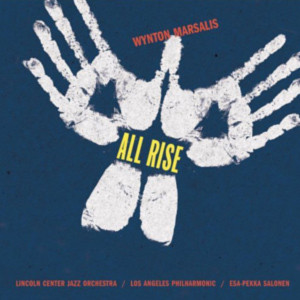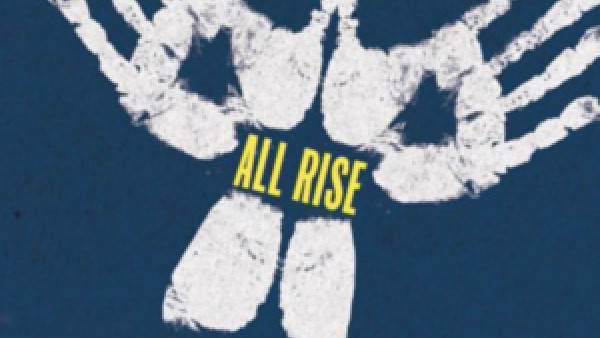Marsalis teaches the meaning behind the music
Wynton Marsalis is at his best playing the trumpet, but he’s hardly at his second best when he is talking to young people. Relaxed as he ambles around the stage, he addresses them without notes, using meaningful language, speaking without condescension, and rising to genuine inspiration.
A week ago, before the morning dress rehearsal of his blues oratorio “All Rise,” Marsalis talked to a diverse audience of teenagers from 26 high schools, assembled in Symphony Hall from all across the state. He had everyone hanging on every word, even though his remarks lasted longer than an Easter sermon. If he hadn’t gone into music, Marsalis might have become a great preacher.
He led the group through the history of “All Rise” and surveyed his intentions in each of its 12 movements. But it was his way of moving toward meaning that was unforgettable. Pointing out the diversity of musical influences that flow into the piece, Marsalis said he wasn’t as interested in the differences among different kinds of music as in the roots that feed all of them — the common language, the human experiences, and the stories that lie underneath. “There is no need to put one kind of music before the others,” he said.
When Marsalis had finished drawing his road map of the piece, he opened the floor to questions.
Asked about inspiration, Marsalis said his music comes from his life, from the things he knows about. “There’s a chorus called `Save us,’ and when I wrote it I was thinking about a ride I took on a plane that almost crashed.”
Then he went on to say that a lot of the experiences he had as a young musician he did not understand at the time.
“When I was 8 or 9, my father made me go and play New Orleans music, and I didn’t want to — we thought of New Orleans jazz as `Uncle Tom’ music, or kissing the tourists’ booty. But I was blessed that I learned this music and what it means.
“Later I was in the Fairview Baptist Church Marching Band, and the director came from the white schools, and he loved the band suites of [British composer] Gustav Holst and the score to Leonard Bernstein’s `Candide.’ I did not want to be playing `Candide’ with a bunch of guys in their 60s, but I did begin to learn about other and different kinds of music.”
The next question was about how to stay true to yourself while absorbing influences.
A week ago, before the morning dress rehearsal of his blues oratorio “All Rise”, Wynton talked to a diverse audience of teenagers from 26 high schools, assembled in Symphony Hall from all across the state.
Here is an article about this speech from Boston Globe:
“Every influence,” he said, “gives you the opportunity to learn something, and that expands your sense of yourself. All of us have originality; not all of us have the courage of our convictions.”
When popular music came up, Marsalis said, “There are many good young musicians working in all genres of music. When I was a kid I used to play pop music, and my brother and I would ask ourselves if anything could get dumber than [the 1976 hit] `Play That Funky Music,’ and we decided it could — and it would.”
Asked if he is ever satisfied with himself, Marsalis said: “You have to know and take the middle road — you have to practice hard enough to improve, but you don’t want to practice so hard that you don’t want to play anymore. Above all, you gotta have a good time.”
By Richard Dyer
Source: Boston Globe


